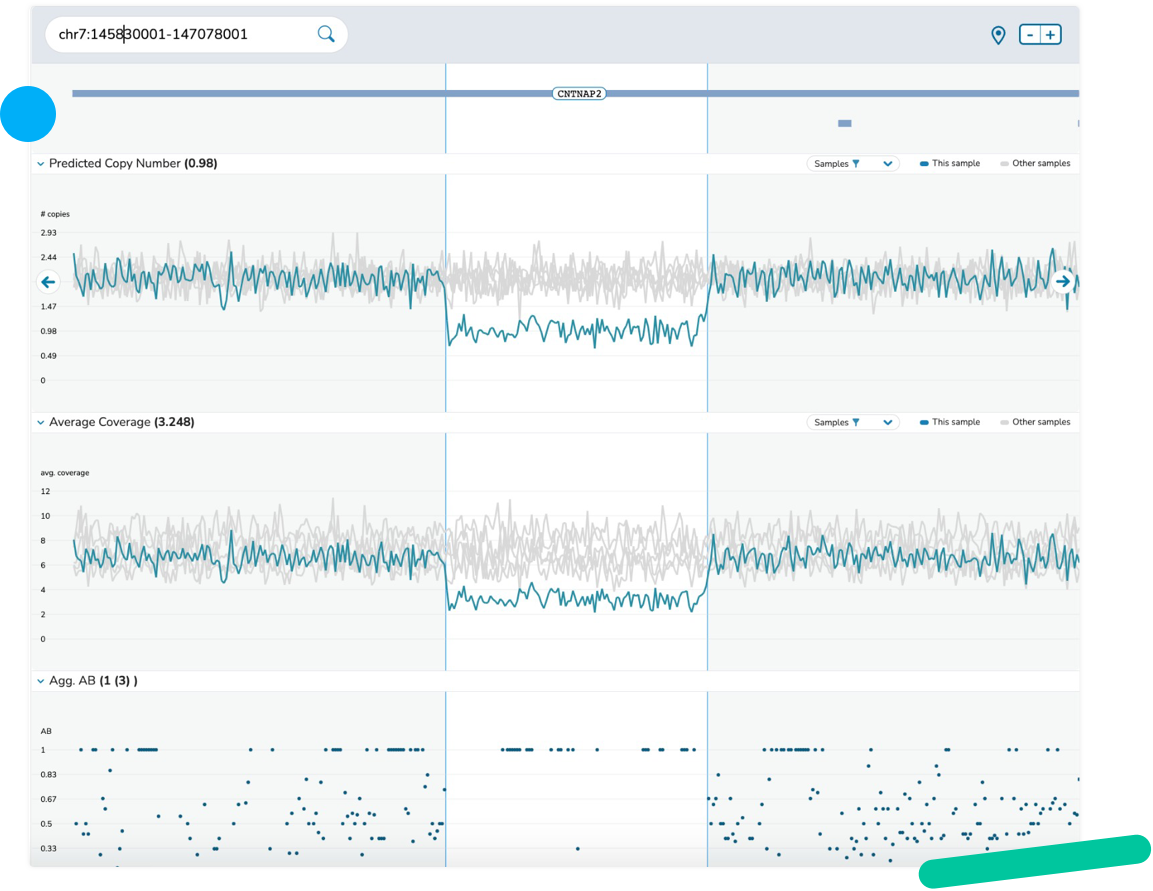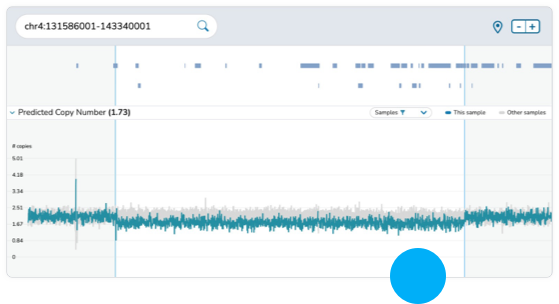Automated case creation
Franklin allows for efficient integration with LIMS, EMR, and
your own organization’s information system through an API,
and also provides various ways to seamlessly import your data
in bulk. You can easily upload batches of all raw data file
formats from the BaseSpace App, as well as Amazon servers,
other cloud-based sources, or your local computer directly
through the platform’s UI. In addition to the sample-specific
quality control indicators, you can also have QC metrics for
each batch, both with customized thresholds to help with
quality assurance and benchmarking of your workflow.

.png)













.png)
